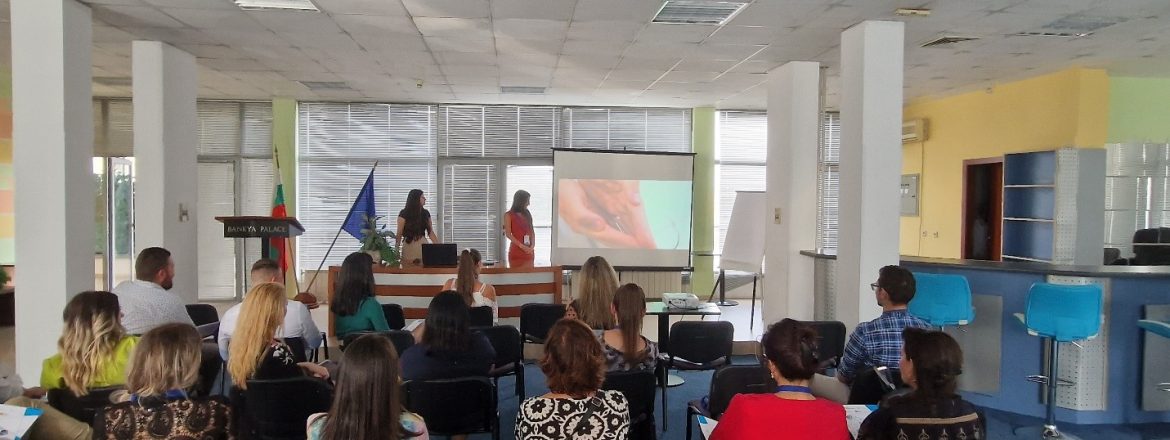
On August 25, 2023, Sofia played host to a significant event aimed at advancing STEM (Science, Technology, Engineering, and Mathematics) education in an online environment. The event, organized by Private School “Tzar Simeon Veliki,” was an integral part of the Erasmus Plus project: “Innovative methods, approaches and practices for effective teaching stem in an electronic environment” [2020-1-BG01-KA226-SCH-095199].
The event was designed to facilitate the transfer of educational innovations for teaching natural sciences and STEM subjects in an online context. It sought to reach representatives from other educational institutions, particularly those focused on pre-gymnasium and gymnasium education levels, along with organizations and institutions directly involved in the field of school education. Moreover, it addressed the challenges that emerged due to the recent sudden transition to online and distance learning, triggered by the global COVID-19 pandemic.
The event welcomed participants from schools that were not part of the project but were involved in pre-gymnasium and gymnasium education levels. Additionally, it attracted representatives from various organizations and institutions, particularly those from remote and small communities, engaged directly in the realm of school education. Participants also included representatives from other sectors associated with school education and those who have been managing the challenges of the recent abrupt shift to online and distance learning. They gained a comprehensive understanding of the educational innovations developed for teaching natural sciences and STEM subjects in an online environment.
Conducted over a single day, the Multiplier Event brought together a total of 50 participants, representing the aforementioned target groups.
The Multiplier Event unfolded through various components designed to showcase the project’s outcomes:
- Presentation of the Online Educational Platform: The event commenced with an in-depth presentation of the project’s intellectual output—an online educational platform. This platform provided access to innovative online resources for teaching natural sciences and STEM subjects, complete with exercises and experiments. It also integrated interactive instructions for educators, allowing for a thorough understanding of how these resources could be linked to online STEM education.
- Demonstration of Innovative Online Resources: Attendees were treated to a presentation and practical demonstration of the innovative online resources developed as part of the project. These resources included exercises, experiments, and associated video materials. They encompassed developed and integrated innovative online resources, accompanied by detailed descriptions and instructions, as well as creatively designed video resources. These video resources built upon recognized best practices from the project’s three partner organizations.
- Online Teaching Manual: The event introduced an online teaching manual, an integral component of the developed platform. This manual offered comprehensive guidance on teaching STEM subjects and conducting laboratory exercises in online and blended learning environments. It equipped educators to effectively utilize the innovative online resources.
- Role of the Intellectual Output: The event emphasized the pivotal role of the developed intellectual product in achieving effective and motivating learning outcomes. It further underscored the delivery of quality and inclusive education online, with a particular focus on the natural sciences.
- Demonstration Sessions: The day featured group demonstration sessions, where specific experiments and laboratory exercises suitable for building digital skills and teaching natural sciences in a digital environment were practically explored. This hands-on approach allowed participants to gain practical experience.
The event highlighted the commitment of Private School “Tzar Simeon Veliki” and its partners in enhancing STEM education in an online setting. It empowered educators and institutions with innovative teaching methods and resources, thus addressing the challenges brought about by the transition to online and distance learning.
This project is financed with the support of the European Commission. This publication reflects only the personal views of its author and the Commission cannot be held responsible for the use of the information contained therein.





